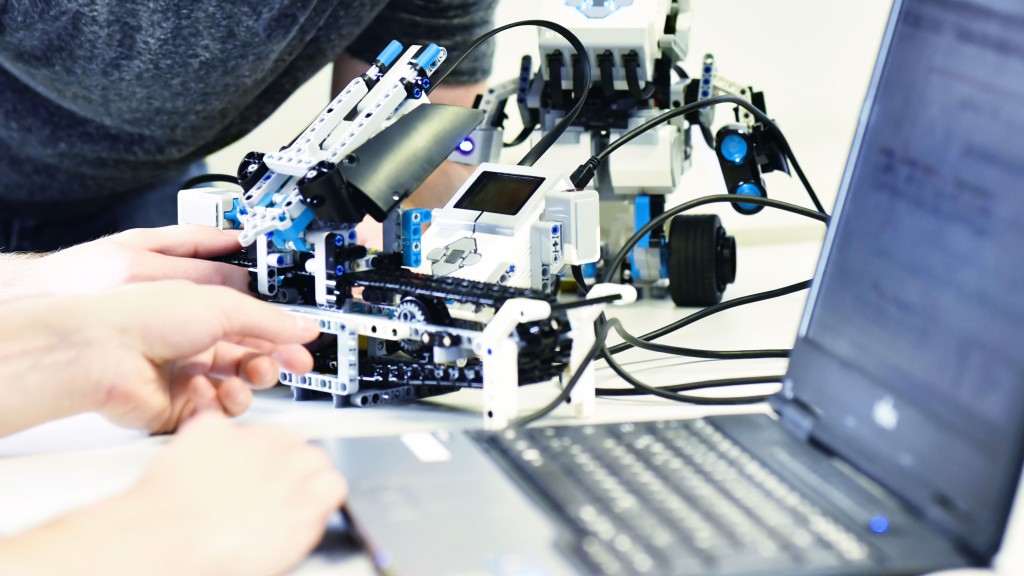

TVET is a process of education and training in the technical field. The Polytechnic is one of the leading institutions that provide semi-skilled workers in the technical and vocational fields in Malaysia as well as in the Asian region. With various achievements and recognition at the national and international levels, Polytechnics is increasingly becoming a target for the industry in finding semi-skilled workers. Nowadays, more and more SPM graduates realize that technical and vocational education not only gives them useful skills in the employment sector but also allows them to earn a decent income. This can be seen with the change in student recruitment trends in TVET institutions throughout Malaysia which recorded a sharp increase in the skill courses offered.
However, polytechnic students who are young people are not exempt from the various challenges they must overcome especially throughout their studies at the polytechnic. High resilience is required to ensure that they succeed in becoming competent polytechnic graduates. In addition, past studies have found that students who have high resilience can reduce their psychological problems.
Digitalization of TVET
In the era of digitization, Polytechnics and Community Colleges also do not miss out on empowering learning program that emphasizes IR4.0, enterprise architecture, Open Data, Big Data Analytics, and so on in line with the KPT 2021-2025 Digitalization Strategic Plan that has been launched. Through learning and teaching approaches and methods, digitization continues to be strengthened over time. This plan includes various aspects of governance strengthening, infrastructure improvement, infostructure development, curriculum development, improving the digital skills of lecturers and students, the application of digitalization of Education through research and innovation, as well as the expansion of collaboration with international bodies. Among the KPT initiatives that support this plan are Data Plan and Device Assistance for targeted students, Massive Open Online Course (MOOC), the upgrading of the Malaysia Research and Education Network (MyREN), as well as the provision of e-learning platforms such as the Curriculum Information Document Online System (CIDOS) in all polytechnics across the country.
Meanwhile, support for online learning which is becoming the new norm for polytechnic students is also provided. An increase in bandwidth that is appropriate to meet the usage demands of students and lecturers has been emphasized and the use of PDSA cloud services has been implemented throughout Polytechnics and Community Colleges in Malaysia. To support this action, the line capacity level has been upgraded from 80Mbps to 600Mbps in all Polytechnic and Community Colleges campuses.
The wave of digitization of TVET has become huge after the era of COVID-19, where online teaching and learning (TnL) has been implemented holistically. However, after the end of that era, certain TnL processes continued due to the needs that seem very important and facilitate. Microsoft Team and Google Meet are the main platforms that are often used for student group discussions, the implementation of additional classes, the implementation of TnL activities, and many more. While various learning applications are also often used to implement formative assessments to strengthen student understanding. Not only that, various learning software and Artificial Intelligence (AI) tools are also used to help their learning. Among the AI tools that students can use are Speechify, Trinka, Brainly, Wiseone, Quiltbot, Grammarly, Canva, and many more.
Resilient Generation
A well-planned and strong TVET ecosystem can boost the success of highly skilled human capital in society. Today’s social and economic sustainability requires a semi-skilled workforce because it can raise the standard of living and socioeconomics for the new generation. Indirectly, it has a positive impact on their resilience due to wide-open job opportunities and increased personal and family economy.
Creativity and innovation are among the important elements in the TVET study system. These two important elements have been applied in their study system at the polytechnics as early as the first semester of study. The ability to be creative and innovative to help solve various problems is often required in the efforts of Polytechnics and Community Colleges to achieve their mission and vision.
Resilient graduates can face many challenges and obstacles that are much greater than they are now. Along with that, the strengthening of identity, unity, and the spirit of patriotism must also be applied, and it is a long-term process that requires collective efforts from various parties.
With this, to produce Polytechnics and Community Colleges graduates who have high resilience to meet the increasingly challenging future, they need to excel in the era of digitization. With graduates’ mastery of digitization skills in the TVET field they are engaged in, it can increase their added value. With this mastery of digitization, it allows them to earn a higher starting salary than graduates from other fields.
The Fourth Industrial Revolution (4IR) and the dynamic global economy transforming New technological achievements. New technologies such as automation, robotics, artificial intelligence (AI), machine-to-machine (M2M), and the Internet of Things (IoT) have greatly changed the operation of this modern world. Through the Fourth Industrial Revolution (4IR) Policy, the country has targeted ten main sectors that cover the main and support sectors. It can create a great impact on all citizens and among the impacts is the introduction of new products and services as well as business models driven by 4IR through 4IR technology. Another impact is the reduction of dependence on low-skilled foreign workers.
Therefore, collaboration between institutions with various government and private agencies should also be actively carried out. Various rigorous transformations from the aspects of infrastructure, info structure, and info culture need to be implemented jointly and comprehensively by everyone at the Polytechnics and Community Colleges. With this, a superior and resilient generation in the era of digitization can be catalyzed so that they can support the current development of the country. The dream of all Malaysians for their beloved country to excel in the future of digitization technology will be achieved with the efforts implemented today.
Rujukan:
Penulis :

Dr. Nur Zakiah Hani Kamarolzaman
Pensyarah
Jabatan Kejuruteraan Elektrik
Politeknik Kuching